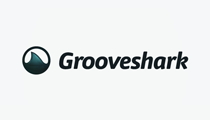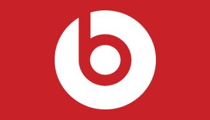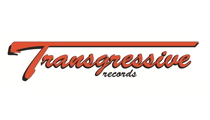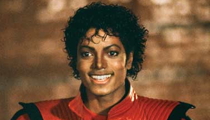This website uses cookies so that we can provide you with the best user experience possible. Cookie information is stored in your browser and performs functions such as recognising you when you return to our website and helping our team to understand which sections of the website you find most interesting and useful.
Tuesday 30 September 2014, 11:49 | By Andy Malt
Approved: FEMM
CMU Approved

I have a soft spot for pop with an unnecessarily confusing back story. Especially if even once you’ve got to grips with that story it still doesn’t really make sense. So all hail Japanese pop duo FEMM, whose mythology is totally baffling. They are, apparently, a pair of sentient mannequins on a mission to discover why humans oppress their kind so.
See? Makes no sense. The duo themselves don’t speak – all communication comes through the Far East Mention Mannequins Agency Syndicate – thus adding further to the mystery/confusion. And what the hell does Far East Mention Mannequins even mean?
Thankfully, the musical side makes more sense. Over the last seven months they’ve released fourteen globally-minded pop tracks onto YouTube, all of which make up their debut album, ‘FEMM-isation’, which will be released internationally on iTunes tomorrow. Tracks like ‘Fuck Boyz Get Money’ (a satire of Notorious BIG line, “fuck bitches, get money”) and my personal favourite, ‘Wannabe’ (not a Spice Girls cover).
Completing the album, and released last week, is the video for ‘Whiplash’:
READ MORE ABOUT: FEMM
Tuesday 30 September 2014, 11:16 | By Chris Cooke
Grooveshark dealt a blow in label lawsuit number two
Business News Digital Grooveshark Timeline Labels & Publishers Legal Top Stories
Hot on the heels of the record industry pushing for a final summary judgement in its favour in its first lawsuit against Grooveshark, boom, yesterday a federal judge ruled in the labels’ favour in the industry’s second legal assault on the often controversial streaming service.
Recap. Grooveshark allows users to upload tracks to its servers, meaning the streaming service boasts a very comprehensive library of tracks, even though it lacks licensing deals with most labels. But it avoids liability for copyright infringement, in the US at least, because it operates a takedown system, whereby labels can order content be removed. And even though users constantly replace removed content as soon as it’s taken down, that is enough for Grooveshark to avoid infringement liabilities according to most judicial interpretations of America’s Digital Millennium Copyright Act.
The labels see that as a loophole in the DMCA and want the Act revised. But in the meantime the major labels’ lawyers have been nervous about pursuing straight copyright infringement litigation against the digital firm, because they’d probably lose.
But lawyers for Universal came up with two ruses. First, sue Grooveshark specifically over the pre-1972 catalogue on its platform, because arguably the so called safe-harbour protections of the DMCA don’t apply to older recordings (see here for more on that). Second, sue Grooveshark over allegations that staff at the streaming firm, including its founders, also uploaded unlicensed tracks to the site, such uploads not being protected by DMCA safe-harbours. Much of the evidence that that had happened was actually gathered from data Grooveshark was forced to supply as part of the lawsuit number one.
And it was with lawsuit number two that the labels scored a win in New York yesterday. Despite constant denials by the Groovesharkers that anyone on the payroll had ever been involved in uploading content (the denials got only louder after one anonymous poster on the Digital Music News site claimed he had worked there and that staff were routinely ordered to upload unlicensed tracks), Judge Thomas P Griesa ruled that employees of the digital firm, including CEO Sam Tarantino and CTO Josh Greenberg, had indeed uploaded 5977 unlicensed tracks onto the firm’s servers.
“Each time [Grooveshark] streamed one of the plaintiffs’ sound recordings, it directly infringed upon plaintiffs’ exclusive performance rights”, said the judge, who also concluded that the Grooveshark company had destroyed important evidence in the case, including a list of the files Greenberg and others had personally uploaded.
Grooveshark said last night that it “respectfully disagrees with the court’s decision and is currently assessing its next steps, including the possibility of an appeal”. So it may not yet be game, set and match. Though if the majors secure a final summary judgement against Grooveshark in the pre-1972 litigation too (they have already scored a win in that case at the original appeal stage), the double whammy might be enough to finish the digital firm off.
If either of the lawsuits stick, Grooveshark would likely face a mega-damages bill the company would be unable to afford (the majors then, presumably, would go after the founders personally). Even while final appeals go through the motions, the digital firm – a relatively early entrant into the fully on-demand streaming market in the US – faces an uphill struggle. Unlike its rivals it has struggled to raise investment while saddled with so many legal woes, and brand partnerships – its biggest revenue stream to date – will be harder and harder to come by as ad agencies read about legal rulings against the firm.
Of course, amongst young music fans Grooveshark remains popular, and the company’s original strategy seemed to be that, eventually, the labels would settle in order to monetise that audience. Though LimeWire also had a massive audience and, in its final days, a decent legit service in development, but the majors had reached the point where they just wanted to see the previously bullish tech firm obliterated. And you sense the same is now true of Grooveshark.
READ MORE ABOUT: Grooveshark
Tuesday 30 September 2014, 11:15 | By Andy Malt
Dave Lee Travis sentence reviewed for undue leniency following complaints
Business News Legal Media
The Attorney General’s Office is considering complaints that Dave Lee Travis’s three month suspended sentence for indecent assault was too lenient.
As previously reported, Travis, real name David Griffin, was last week convicted of indecently assaulting a researcher on ‘The Mrs Merton Show’ in 1995. He was also found not guilty of another count of indecent assault, while the jury was unable to reach a conclusion on a sexual assault charge. He was previously acquitted of twelve other sexual offence charges.
In sentencing the presenter last week, the judge took into account the length of time the case had taken to work its way through the courts, despite Griffin’s co-operation throughout, and other financial and health factors as mitigating circumstances. But this ruling, and the resulting sentence, has seemingly met with some disapproval.
A spokesperson for the Attorney General told CMU: “I can confirm that the sentence handed to David Griffin (also known as Dave Lee Travis) has been referred to the Attorney General’s Office under the unduly lenient sentence scheme. It only takes one person to trigger the process, and there is a strict 28 day time period, which means the Law Officers have until Friday 24 Oct to consider whether they wish to refer the sentence to the Court Of Appeal”.
READ MORE ABOUT: Dave Lee Travis
Tuesday 30 September 2014, 11:14 | By Chris Cooke
Beats sues ‘co-founder’ for calling himself co-founder
Brands & Merch Business News Industry People Legal
When I write my opera about the history of the Beats company – which includes a great scene just after the interval with Dr Dre swimming in a sea of hundred dollar bills – the Steve Lamar side-story may just be the most interesting bit.
Lamar, you may remember, claims that the concept of using celebrity endorsement to sell shitty headphones at a massive mark-up was his grand idea, and that he was originally in business with Universal exec Jimmy Iovine and his mate Dre to make that dream a reality. Though before we ever saw kids the world over donning stupid clunky cans because of Dre’s endorsement, the business partnership had crumbled.
Through various lawsuits Lamar was cut into some of the profits from Beats headphones, though exactly which profits is now the subject of new litigation. Meanwhile, the self-declared founder of Beats is busy setting up a new headphones business called Roam. And the businessman is trading very heavily on his early association with the Beats business.
In doing this, he has pissed off Beats Electronics and its new parent company Apple, who, according to The Hollywood Reporter, have now filed their own legal proceedings accusing Lamar of making false and misleading claims in order to boost his new business venture.
Says the legal filing, “defendants’ claims are false and misleading because Lamar is not a ‘co-founder’ of Beats Electronics, LLC. He does not have – nor has he ever had – any ownership interest in the company. Moreover, Jibe Audio [once run by Lamar] was not responsible for the ‘concept, design, manufacturing and distribution’ of Beats headphones”.
Big bad media types have been tricked into calling Lamar a Beats founder, says the lawsuit, and he has then been tweeting these reports. Meanwhile Roam’s website and social media makes a big deal about its owner co-founding Beats. And, despite the Beats company’s subsequent protestations, the Roam company has “taken no steps to inform the public that these statements were incorrect”.
So there you go. Lamar, not a co-founder of Beats. Roam, no association with Beats or any of its technologies. Roam in no way linked to Dre. Sounds good, where can I buy a pair of these headphones about which you speak?
By the way, at this point my opera will throw to a stage full of beautiful people doing Ellen’s rubbish Beats Music dance.
READ MORE ABOUT: Apple | Beats Electronics | Dr Dre | Steve Lamar
Tuesday 30 September 2014, 11:13 | By Chris Cooke
HMV scored profits of £16.7 million in year after administration
Business News HMV Timeline Retail
HMV’s owner Hilco has shared a handful of boasts in recent months about how the high street music seller is recovering very nicely thank you very much since its collapse in January 2013. And now the Telegraph has been shown the company’s accounts, which are about to be filed with Companies House, and which report £16.7 million of operating profit on £311.2 million of sales. “An impressive turnaround”, says the broadsheet.
Of course, I think most of us knew that at the heart of HMV – the last man standing in mainstream high street entertainment retail – there was a profitable business. The problem was that the then publicly listed firm was saddled with about hundred loss making stores, an over-staffed HQ and distribution centre, and millions in debts, mainly stemming from an admirable but unsuccessful attempt to diversify the brand.
When HMV plc fell into administration, most of those weights were cut loose; loss-making stores were closed down, the over-manned HQ was downsized and the debts were written off. Hilco’s real genius was in buying out of administration the bit of HMV that was a going concern, while letting all the bad bits die.
Though that’s not to say Hilco hasn’t managed its new toy well in the first year since acquisition, maintaining a strict line on stores in danger of making a loss and taking a tough stance when negotiating rents on premises, but at the same time remaining outwardly upbeat.
A renewed focus on core music and movie products has pleased the labels and DVD publishers, and stepping up the in-store event programme has helped get more casual consumers back in store, while ensuring in a Google News search of HMV coverage of popstars dropping by outweighs local paper reports on closing stores here and there.
However, a pessimist might wonder whether any of this means the long-term future of HMV is assured. Mainstream CD and DVD sales are still ultimately in terminal decline, even if things have steadied a bit this year in the UK and HMV has upped its market share. And the new HMV is yet to do anything magnificent online – commercially speaking – it having withdrawn from mail-order and launched a decidedly lacklustre MP3 service.
Although, for a company that some had pegged for oblivion in late 2012, it seems that HMV will continue to sit on our high street and in our shopping centres for at least a few more years to come.
READ MORE ABOUT: HMV
Tuesday 30 September 2014, 11:12 | By Chris Cooke
eMusic announces return to indie label roots
Business News Digital
So, a definite rewind here, though very possibly too little too late. Time to talk about eMusic everybody. Yeah, you remember eMusic, possibly the first ever music download service?
You know, the one that went live in 1998, and which led the way in an era that I think we can all agree was the happiest time for digital music: Peoplesound, Vitaminic, iCrunch, Wippet, ah those the were the days. Long before anyone had even thought of setting up a streaming service. Oh, hang on, Chrysalis’s Puremix and Yahoo’s Launch. Yeah, basically digital music was all sorted by 2000, it’s just the majors were in denial and BT was dithering about broadband.
For years eMusic positioned itself as the download store for real music fans, specialising in indie label content. Though that was more circumstance than anything else. eMusic was an MP3 download service, and these were the days when the major labels were still refusing to sell music in any file format that didn’t come with digital rights management technology, because that would be convenient, and the last thing music consumers needed was convenience (major label execs in 2004 were sort of the Thom Yorkes of their day).
Even after the majors finally dropped the DRM and properly kickstarted the download market, the big record companies weren’t keen on eMusic’s novel business model. It was a subscription download service, where users paid a set fee each month and were then able to download a set number of tracks. It meant users were committed to a set monthly spend, but the per-track cost of each download was less as a result.
The majors didn’t oppose to the subscription approach in principle, but didn’t like the fact each track was priced at ‘one credit’, just as they were trying to instigate variable pricing on iTunes (mainly so they could subtly push the average price of a download upwards).
In order to get the majors on board, eMusic had to alter its business model, which was unpopular with both the indie labels that had supported the service from the off, and many of its customers. Yet by this point iTunes and Amazon had so cornered the mainstream download market, eMusic really struggled to capitalise on the major label content it now had access to.
Facing a slide into obscurity, the company downsized and later merged with an ebook firm called K-NFB Reading Inc. Most people in the industry, even digital music execs, more or less forgot eMusic still existed, except when it popped up as a sponsor at one industry event or another.
But it does still exist, and does still have a userbase of sorts. And, according to the New York Times, that membership received an email yesterday announcing the service was “exiting the mainstream music business”, ending its partnerships with the majors, and returning to its roots as a hub of indie label content.
Says the note: “Beginning 1 Oct 2014, the leading download-to-own music retailer will be exiting the mainstream music business and exclusively offering independent music. The company’s goal is to build the most extensive catalogue of independent music in the world”.
Which is an admirable goal, though you can’t help thinking that the consumer base for such a thing were the first to dump downloads and sign up to Spotify et al. And on the other side of the equation, the indie labels which ten years ago would have got wholly behind such a proposition, are now very much focused on the booming streaming revenue that is becoming core to their businesses.
Still, Peoplesound, Vitaminic, iCrunch, Wippet, Puremix, Yahoo Launch – eMusic is the last survivor of the very early days of digital music. So it’s sort of nice to see it’s still fighting the fight to stay online. Next week: myCokeMusic, time for a comeback?
READ MORE ABOUT: eMusic
Tuesday 30 September 2014, 11:11 | By Aly Barchi
Noel Gallagher to debate himself at Xfm charity event
Artist News Education & Events
Noel Gallagher will on 3 Nov lead a live, Xfm-presented Q&A event centring on… well, himself, a topic on which he, if anyone, is the world’s #1 authority.
Taking place at the Hammersmith Club in London, this “WORLD FIRST” has been arranged in order to raise “a few bob for the kids” of Make Some Noise, Global Radio’s national children’s and young people’s charity.
Gallagher and a team of biz insiders – like Alan McGee, Nicky Wire and Shortlist magazine’s dep ed Hamish McBain, for instance – will all sit in on the ‘in conversation with’-style affair to look back on Noel’s life and times ‘in rock’, from his Oasis days, to the rise-and-drop of 1990s Britpop, and his doings with his new band, the High Flying Birds.
Tooting his horn ahead of the big night, NG says: “Having rarely stopped blowing my own trumpet since April 1994, it’ll come as no surprise I jumped at the chance to let the people catch me at it again, so to speak, while at the same time raising a few bob for the kids. It’ll be a pleasure”.
Xfm’s Managing Editor Chris Baughen, meanwhile, adds: “We all know how great Noel’s music is but I think we sometimes forget just how much he’s packed into the past 20 years, and the impact he’s had on a generation. This unique night will allow us to hear some of the stories behind one of the biggest bands, and one of the greatest songwriters in the world”.
Tickets to ‘An Evening With Noel Gallagher’ cost from £40 to £100, and will go on sale this Wednesday, here, with all profits going to Make Some Noise.
READ MORE ABOUT: Make Some Noise | Noel Gallagher | Xfm
Tuesday 30 September 2014, 11:10 | By Aly Barchi
Black Sabbath to make one last LP, possibly with Rick Rubin
Artist News
Ozzy Osbourne has broken the news that Black Sabbath will only make one other, final, 20th LP as a band, then that’s it. No more. That’s your lot. Go away.
Apparently the idea with the new record, which they’re set to begin recording early next year, is to work with Rick Rubin again, a la 2013’s ’13’, or so Ozzy ‘believes’.
Revealing all for Metal Hammer’s ears only, Ozzy said: “The whole Sabbath experience this time around was great. We all made friends, we didn’t fuck around, we all knew that we had a job to do, and we did it. It was a lot of fun. So we’re going to do one more album, and a final tour”.
Spring-boarding off that, he went on: “Once the dust settled after the last tour we started discussing the idea, because we were getting asked about it all the time. I said to Sharon ‘What’s going on? Because if there’s no more Sabbath I want to get on with my own thing again’, and she came back and said ‘Let me look into it'”.
“Three weeks later I asked her about it again, and she said, ‘Oh, I still have to talk to so and so…’ and I said, ‘Sharon, I ain’t fucking 21 any more, if we’re going to do it I want to do it before I’m 70! Time isn’t on our side!’ So she made the call and came back and said, ‘Yeah, the record company wants another album’. I believe Rick Rubin is going to do it with us again”.
As for placing a basic timeline on the LP, he adds: “It’ll be sooner rather than later. Obviously a lot of it is coming down to [Sabbath guitarist] Tony [Iommi]’s health, he’s obviously got his cancer treatment, but we’ll get onto it next year. I don’t know if we’ll be writing in England or LA, but I’ll fly to the fucking moon for it if I have to!”.
Whether they’ll make time to patch things up with drummer Bill Ward for one last hurrah remains to be seen. But talking of Tony Iommi, as we were, that very man started teaching songwriting and composition-type skills at Coventry University last week, having been hired as its Visiting Professor Of Music earlier this year. Here’s a piccy of him taking his first class, an experience he described as “interesting”.
READ MORE ABOUT: Black Sabbath | Ozzy Osbourne | Rick Rubin | Tony Iommi
Tuesday 30 September 2014, 11:09 | By Andy Malt
Transgressive tenth anniversary celebrations hit The Barbican tonight
Artist News Gigs & Festivals Labels & Publishers
As part of the company’s ongoing tenth anniversary celebrations, tonight Transgressive Records host a sold out show at The Barbican in London. Compered by Huw Stephens, there will be performances from Dry The River, Mystery Jets, Johnny Flyyn, Marika Hackman and Cosmo Sheldrake.
Discussing the show, Transgressive co-founder Tim Dellow told CMU: “We always wanted to have a bit of a ‘swankier’ gig as part of the celebrations, and The Barbican, with its incredible architecture and commitment to all things cutting edge seemed like a great statement show. We’ve got five acts playing in total – many which could headline this venue under their own steam, each of them doing really special sets”.
Asked if he and co-founder Toby L ever foresaw that they’d still be running the label ten years down the line, he said: “We were always really ambitious, and I think a bit more self-righteous back then, so probably! Once you start falling in love with bands, not just the records, it’s a compulsion to grow, and keep adding value to their careers”.
Read more from our discussion with Dellow about Transgressive’s first decade here.
READ MORE ABOUT: Dry The River | Johnny Flyyn | Marika Hackman | Mystery Jets | Transgressive
Tuesday 30 September 2014, 11:09 | By Aly Barchi
Röyksopp nearing The Inevitable End
Artist News Releases
Pride-of-Norway Röyksopp, aka long-time synth-pop kin Svein Berge and Torbjørn Brundtland, have confirmed an ‘Inevitable End’ to the LP-releasing era of their Röyksopp lives.
So in other words, Röyksopp’s forthcoming fifth LP, ‘The Inevitable End’ – which is arriving, with a heavy sense of finality, on 10 Nov – will be their final collaboration of a “traditional album format”-type ilk. It features Berge and Brundtland’s ‘Do It Again’ featuree Robyn, as well as additional singing by CMU Artist Of 2012 Susanne Sundfør, Jamie Irrepressible and Ryan James, alias Man Without Country.
Doing a bit to define the new record’s general ‘tone’ sort-of-thing, Berge says: “With ‘The Inevitable End’ we’ve moved into a darker subject matter, with emphasis on the lyrical content. This candid approach feels very both personal, sincere and conclusive”.
Saying his piece, Brundtland adds: “With this album it became clear we wanted to make an album in a classical sense even if it’s the last one we make”.
And explaining where they pair’s heads ‘are at’ at the moment with respect to LPs and all that (in case it wasn’t clear, which is sort of wasn’t and still isn’t), Berge says: “We feel like this is a goodbye to the traditional album format. In our consecutive run of albums, we have been able to say what we want to say and do what we want to do with the LP. We’re not going to stop making music, but the album format as such, this is the last thing from us”.
Finally, try on first-listed ‘Inevitable End’ track ‘Skull’ right now.
READ MORE ABOUT: Röyksopp
Tuesday 30 September 2014, 11:08 | By Aly Barchi
CMU’s One Liners: Believe x AFEM, Queen x Adam Lambert, Nicole Scherzinger x Cats and more
Artist News Business News Digital Gigs & Festivals One Liners Releases
Other notable announcements and developments today…
• Believe Digital is the first major distributor to join that there Association For Electronic Music, the previously reported trade body for everyone making tunes that some might deemed to be ‘EDM’. The alliance also means Believe customers will benefit from a discount from anti-piracy platform AudioLock which is offered to AFEM members.
• Former Pussycat Doll Nicole Scherzinger is set to play an actual (not actually actual) cat in the upcoming London return of Andrew Lloyd Webber’s ‘Cats’. Sherzy will play the bedraggled Grizabella, who sings one of the show’s best known songs ‘Memory’, a character originally played by Elaine Paige in the only slightly tedious West End show.
• Having split up for good in 2011, REM have been cleaning out some cupboards and found a load of old videos – concert footage, award acceptance speeches, TV appearances, that sort of thing. Wanna see it? Well it’ll all be shoved onto a six disc DVD boxset called ‘REMTV’, out on 24 Nov.
• Flag-wavers for Welsh post-hardcore Funeral For A Friend are releasing their new LP, ‘Chapter And Verse’, via Distiller Records on 19 Jan, the year 2015. Find all the info available on it here, and look at the band’s forthcoming live listings on this page.
• Star-spangled pop Liberace Adam Lambert, and his backing band Queen (pictured), are playing a right royal lot of shows, as one, in January 2015. The first UK date is 13 Jan at Newcastle Arena and the last is at Nottingham Arena on 24 Jan. Listings and ‘ticks’ here.
• ‘Road-trip rock’ champs The War On Drugs are doing an ol tour in 2015, to support ‘Lost In The Dream’, the LP that made them all mainstream earlier this year. The hit the Brit circuit on 19 Feb at the Manchester Albert Hall, and stay till 28 Feb, playing all the while. Details here.
• Ageing R&B dinosaur (yeah, that’s an in-joke, sorry) Usher Raymond will take his ‘UR Experience’, to UK fans’ neighbourhoods on 14 Mar 2015, for a show at Nottingham’s Capital FM Arena. Various other shows follow that, and you can look at which, where and when here.
• Last and most old of all, sub-bass dance kingpins Underworld have added lots of shows to twentieth anniversary live trip in the name of their milepost LP ‘dubnobasswithmyheadman’. The first is at Bristol’s Colston Hall on 5 Mar, and the last on the UK stint is, in fact, at The Sage in Gateshead on 14 Mar. Get ya details here.
READ MORE ABOUT: Adam Lambert | Association For Electronic Music (AFEM) | Believe | Funeral For a Friend | Nicole Scherzinger | Queen | REM | The War On Drugs | Underworld | Usher Raymond
Tuesday 30 September 2014, 11:07 | By Andy Malt
Michael Jackson’s Thriller video coming back from the dead… in 3D!
And Finally Artist News
Director John Landis is working on a 3D version of Michael Jackson’s ‘Thriller’ video. No, don’t worry, he’s not planning to dig the late singer up and make it anew (though that would kind of work, I guess). It’ll probably just be one of those things where a 2D film is retroactively converted into 3D and it doesn’t really work and then everyone is disappointed. Hurrah!
Work on squeezing a bit more money out of Jacko and his fourteen minute mini zombie movie has apparently been in the works for some time, but can now forge ahead officially after Landis settled a long-running lawsuit with the Jackson estate (and initially the singer himself, which tells you how long it went on for) over unpaid royalties.
Landis told New York Daily News: “That lawsuit went on for so many years, [but] we settled and they paid me finally. And so, actually there is something happening with ‘Thriller’. It is going to reappear in a highly polished and three-dimensional way that is very exciting on the big screen”.
As previously reported, Landis claimed in 2009 that he was due 50% of royalties generated by the ‘Thriller’ video, but had not received anything in a number of years, leaving him owed as much as $1 million. In 2012, one of the actors in the video, Ola Ray, also settled a similar lawsuit over royalties she said she was due.
Since Jackson’s death, there have been a number of ideas floated for updating ‘Thriller’ – one being a feature-length film directed by Jackson collaborator Kenny Ortega. A source also claimed to NYDN that the Estate is considering a video game and a ‘dance experience’, amongst other possibilities.
READ MORE ABOUT: John Landis | Michael Jackson
Tuesday 30 September 2014, 11:05 | By Andy Malt
Q&A: Tim Dellow, Transgressive Records
Business Interviews
Launched in 2004 by a pair of enthusiastic teenagers, Tim Dellow and Toby L, Transgressive Records is this year celebrating its tenth anniversary.
In their first year, the label worked with artists including Mystery Jets, The Subways, The Pipettes and The Young Knives, before finding an early (and continuing) mentor in the form of long-serving A&R man Seymour Stein. Since then the company has gone on to release music by the likes of Graham Coxon, Bloc Party, Regina Spektor, The Shins, Foals, Johnny Flynn, Liam Finn, Pulled Apart By Horses and many more.
The company has also branched out into other areas of the music business, with a publishing arm and both artist and producer management companies. Its founders are also creative directors of TV production company LoveLive, which has worked with Rihanna, Eminem, Adele and many more.
Tonight, as part of the ongoing birthday celebrations, Transgressive hosts an evening at The Barbican in London, with performances from Dry The River, Mystery Jets, Johnny Flyyn, Marika Hackman and Cosmo Sheldrake, all compered by Huw Stephens.
Ahead of that, CMU’s Andy Malt caught up with Dellow for a look back at Transgressive Records’ first ten years.
AM: What was your background prior to setting up Transgressive? You were pretty young, right?
TD: I was in a small math-rock band, and putting out DIY photocopied zines and shows. Toby was pioneering internet blogging with Rockfeedback.com and putting on more successful shows. We were both eighteen when we met, but had quite a lot behind us by that stage!
AM: And what prompted Transgressive into life?
TD: I think a desire to release music that wouldn’t come out without us – champion things that we really believed in.
AM: How much did you know about how a label worked before you started? How steep was the learning curve?
TD: A little from having DIY labels pressing my own music onto vinyl, and from both of our experience interviewing bands and label heads about how it works… but there’s nothing like making mistakes for yourself! We were lucky in finding a raft of exciting bands early on – and so you learn quickly from seeing how those careers develop too.
AM: Did you have any sort of ethos or outlook for the company when it started, and have you stuck to that?
TD: 100%. We wanted to do things right – ethically and fairly – and to make sure that we brought a value to our artists. To make promises, and keep them. Pretty much everything else has changed through the passage of time though. Originally we were only going to release things on vinyl, and never CDs, for example. But we found that you have to adapt to the market when acting in the best interests of your artists and their ambitions and, as long as you keep the important parts at heart, flexibility is a good thing.
AM: How did the connection with Seymour Stein come about, and what was his input?
TD: We first met Seymour because we were interested in releasing Regina Spektor who he and his then colleague Michael Goldstone had signed to Sire in the USA. Toby had been a fan and friend of Regina from putting on her early shows in the UK, and when we heard there were plans to re-release her last album, we pitched them a UK only compilation of her first three underground releases. Seymour was really excited about our passion and approach, and as he did with Creation, Rough Trade and Mute before us, flew us out to NYC to meet with him. It was such an inspiring introduction to a true music man.
AM: What was it like meeting someone so revered, so early only?
TD: Personally speaking, it opened my mind. I was still thinking really ‘punk’, really DIY. He showed us that there were only two types of music – ‘good’ and ‘bad’ – and as long as you follow your ears, you can really make an impact and bring your passion to the masses.
AM: How far ahead were you thinking back then, did you ever imagine you’d be celebrating your tenth anniversary?
TD: We were always really ambitious, and I think a bit more self-righteous back then, so probably! Once you start falling in love with bands, not just the records, it’s a compulsion to grow, and keep adding value to their careers.
AM: Over time you’ve added management and publishing divisions to the company. Was that a natural progression of what you were doing?
TD: It was partially strategic, partially lucky, and partially about survival. We didn’t know what publishing was when we started, but found a great partner in Warner/Chappell, and used it as a way to sign The Noisettes who were one of our favourite bands of the time who were already in a record contract. But now, it’s probably the biggest side of what we do.
AM: How important do you think that sort of diversification is for indie labels in the modern music business?
TD: I think there’s something fantastic about doing one thing really well, and I’d suggest that if you’re going to diversify, find great partners, or employ experts in that area. You trade off reputation so much, and it can easily be eroded if you don’t continue to keep those promises!
AM: You’re also involved in LoveLive. How does the world of TV differ to the music industry?
TD: LoveLive’s a great endeavour – it’s broadened our horizons once again, and a lot of the work we do in finding new ways to monetise content, and create new income streams for the music industry really inform and support our other activities.
AM: You’ve worked with a lot of different artists over the last decade, but are there any that really stand out as highlights?
TD: We’re honoured to have worked with so many incredible artists – and all have been special in their way. From releasing At The Drive-In and Graham Coxon, who influenced our musical development so much, to discovering Gengahr and Alvvays, who we know will change lives in the future, each is a privilege. Genius isn’t measured by an artist’s scale, and as such, being in such close relationships with them, we have highlights every day.
AM: Were there deals you wanted to do that just got away? And how do you feel about not working with those artists now?
TD: Ahhh, so many… We would have loved to have released Kelis’s new album. Working in some capacity with a band like Wild Beasts would have been incredible. But everything happens for a reason, and you have to remain philosophical. And we’re hoping to be working in this industry for a very long time, so hopefully there’s potential for paths to cross at some stage in the future.
AM: The music industry has been through a lot of change since you started, what would you say to two teenagers looking to set up a record label today?
TD: “Don’t…” “Really, think about it…” And then, if they keep pressing, encourage them, but get them to focus on things that are easily achievable and grow it organically. And probably join AIM. Then just find genius.
AM: You’ve done various things to celebrate the tenth anniversary already, but tonight is the show at the Barbican. Tell us a bit about the artists you’ve got playing that and how you chose them.
TD: We always wanted to have a bit of a ‘swankier’ gig as part of the celebrations, and The Barbican, with its incredible architecture and commitment to all things cutting edge seemed like a great statement show.
We’ve got five acts playing in total – many which could headline this venue under their own steam, each of them doing really special sets.
Johnny Flynn is one of our most important artists, and we’ve worked with him for eight years now. His influence has factored on so much of our roster, and we couldn’t think of a more appropriate person to close the night.
The Mystery Jets have been friends for ten years now, from their first single on Transgressive, to the two records of theirs we publish, and their approach to music is so expansive and ambitious.
Dry The River have just released one of the best albums we’ve been associated to, and hit the Top 40 with it too, so is a great excuse for a party.
Marika Hackman is a complete genius, brought to us by Johnny Flynn, who’s album next year will be an important piece, and from what I’ve heard, a real early contender for the Mercury Prize.
And then finally, Cosmo Sheldrake, who was also introduced to us through Johnny (perhaps our best secret A&R guy), and whose inventiveness and unencumbered approach to the possibilities of sound will be the perfect opener.
AM: Where do you see Transgressive in another ten years’ time?
TD: I believe in rude health. Still subverting the industry from within, and replacing old structures with something more positive. And releasing music that could change your life.
READ MORE ABOUT: Tim Dellow | Transgressive
Monday 29 September 2014, 10:58 | By Aly Barchi
Approved: Homeshake
CMU Approved
Homeshake is the kind-of-solo-alias of Canada-based Peter Sagar, who at the times when he isn’t on his Homeshake grind, and/or looking for his shaver, also plays guitar in @macdemarcosband.
Having finessed, over a spread of DIY tapes, a style that’s a lighter, goofier, ‘younger brother’-type likeness of DeMarco and co’s body of slack-jawed wonk-pop, Sagar will on 7 Oct release his first official Homeshake LP, the “smooth and cool” ‘In The Shower’, via Sinderlyn.
In advance of that, hear ‘In The Shower’ sister tracks ‘Cash Is Money’ and ‘Making A Fool Of You’:
READ MORE ABOUT: Homeshake | Mac DeMarco
Monday 29 September 2014, 10:47 | By Chris Cooke
Universal pushes for summary judgement in Grooveshark pre-1972 case
Business News Digital Grooveshark Timeline Labels & Publishers Legal Top Stories
If all that talk last week about the complexities of American copyright law when applied to pre-1972 sound recordings got you all excited (and I can’t imagine why it wouldn’t) well, what a way to start the week. Yes, developments in another ongoing lawsuit centring on very similar issues. You lucky, lucky, lucky, lucky people.
So yes, US-wide federal copyright law only directly applies to sound recordings made since 1972, with records made before that date protected by state copyright laws instead. Which has caused all kinds of quandaries over whether or not 1990s federal legislation dealing with various matters relating to music delivered through satellite and internet channels could or should apply to pre-1972 recordings. And, if not, what the hell does state law, mainly written pre-web, think about various web-based issues?
Last week the specific question being asked – via a lawsuit involving satellite radio firm Sirius – was whether satellite and internet radio services are obliged to pay the labels royalties for using pre-1972 recordings, given that the framework for such royalties is set out in federal law. Today – via an ongoing legal battle between the majors and Grooveshark – the question is whether or not federal safe-harbours that protect digital operators which inadvertently (or perhaps that should be ‘inadvertently’) infringe copyright should apply to pre-1972 records.
Quick recap. Grooveshark works like an audio version of YouTube, in that users are invited to upload MP3s to its server which other users can then listen to on demand. If the labels which own the uploaded recordings object to their content being uploaded – and most do – they can issue takedown notices to have the content removed. Grooveshark argues that because infringing content is uploaded by users, and because the website offers labels the option to have content removed, the company is not liable for infringement because of the safe harbours in the US Digital Millennium Copyright Act.
And it is probably right about that, given how most courts have interpreted the DMCA safe harbours. But the labels argue that Grooveshark is exploiting a loophole in the law, because we all know that users will re-upload tracks as soon as the streaming company enacts any takedown, which means the service can offer a pretty comprehensive catalogue of music at any one time despite lacking licences from most record companies and many music publishers. And for all Grooveshark argues its operation is no different to that of YouTube, Grooveshark has not developed a ContentID-like system to help rights owners monitor music uploaded to its servers.
But the music industry’s lawyers aren’t confident that the loophole argument would work in court (the matter is, instead, with the industry’s lobbyists, who want the DMCA revised to put some more obligations on the digital companies). However, Universal’s lawyers came up with some loopholes of their own, noting that the Grooveshark catalogue has records in it that pre-date 1972, and surely the federal DMCA safe harbours cannot apply to state copyright-protect works?
At first instance in 2012 a New York judge did not concur with the majors, arguing that having DMCA safe harbours only applying to post-1972 recordings would “spawn legal uncertainty” for digital firms relying on the federal laws for protection. But on appeal last year that ruling was overturned, with appeal judges saying that, in fact, “Congress explicitly, and very clearly, separated the universe of sound recordings into two categories, one for works ‘fixed’ after 15 Feb 1972, to which it granted federal copyright protection, and one for those fixed before that date, to which it did not”.
Fast forward to now, and with Grooveshark’s request to take this case to the higher Court Of Appeals denied, Universal is pushing for a summary judgement in its favour. According to the New York Law Journal, the major’s court filing earlier this month read: “There is no dispute that UMG is the owner of the pre-1972 recordings at issue, and that [Grooveshark] has infringed UMG’s common law copyrights in those recordings by streaming copies of these works … without any authorisation or license to do so”.
http://www.newyorklawjournal.com/this-weeks-news/id=1202671477438/Music-Service-Provider-Grooveshark-Battles-Copyright-Claims?mcode=1202615038803&curindex=0
Grooveshark’s ongoing infringement, Universal’s legal papers go on, is “part of its premeditated business strategy to exploit the popular sound recordings owned by UMG and other record labels in order to attract users to Grooveshark without paying any licensing fees”. This, the legal men argue, is threatening “to destroy the very lifeblood of UMG’s business”.
For its part, Grooveshark is still fighting. Its current argument seems to be that, if the safe harbour clauses of the DMCA do not apply to pre-1972 catalogue, then court time needs to be given to what New York state laws say about Grooveshark’s business model. Of course state laws directly say very little about the matter, so that would require arguments from both sides as to why, or not, Grooveshark’s operations are straight copyright infringement without the DMCA.
Meanwhile, says Grooveshark in its filing, Universal’s litigation “reflects an unabashed attempt” by the major to force digital start-ups “out of business” by “exploiting what [it] perceives to be a loophole in the federal statutory scheme that provides safe harbour protection” to digital companies.
A final ruling in this case could have impact on both the other pre-1972 lawsuits, and on how web firms that allow users to upload audio and video content to their servers go about directly monitoring (or not) those uploads.
READ MORE ABOUT: Grooveshark | Universal Music
Monday 29 September 2014, 10:46 | By Chris Cooke
Eddie Schwartz and Jean Michel Jarre ask IP lawmakers to stick up for the creators
Business News Digital Legal
I’m pretty sure we all agreed to stop equating streams for downloads, let alone record sales, though that didn’t stop Canadian songwriter Eddie Schwartz pulling out the old cliché at the General Assembly of the World Intellectual Property Organisation in Geneva last week. Which is a shame because he and Jean Michel Jarre were raising decent concerns at the annual meeting of IP lawmakers about ensuring creator rights are remembered as frameworks are built governing copyright in the digital age.
Focusing less on piracy, and more on how songwriters and artists will earn a living for legitimate digital content businesses, Schwartz noted during one discussion: “Sales of one million records would at one time have paid me a modest middle class income and I would have received a platinum record. Looking at my digital royalty statements today, for one million streams I get $35. My middle class economic status has been reduced to a pizza”.
Meanwhile Jarre, speaking in his role as President of the global collecting society grouping CISAC, said: “We, as creators, are pro-technology. We embrace it and welcome the wider access to culture that digital devices and services afford the public, and the opportunity to reach wider audiences that technology affords creators. But we need business models that make sense to all parties”.
Meanwhile Schwartz went on: “For the first time in history we have global platforms that can distribute creative content from virtually anywhere in the world to anywhere in the world. Thanks to the internet, African, Latin and South American and Asian music creators have instantaneous and universal access to the same European and North American audiences and consumers that I as a Canadian songwriter have had access to over the course of my professional life. But ironically, of what value is this unprecedented access if the music is virtually worthless?”
He concluded: “If the revenues don’t flow back to creators, while the shareholders and CEOs of companies who deny the value of music enjoy literally billions in profits, surely something is terribly wrong”.
Supporting the input of Schwartz and Jarre, Gadi Oron, Director General of CISAC, said that ministers and political decision makers at the WIPO event “should use their power to ensure creators can continue to make a living from their work and that the digital market does not benefit only a few powerful online players”.
Exactly how lawmakers could or should ensure the flow of money made from licensed digital music services is fairly divided between web firms, corporate rights owners and individual creators is less than clear.
Though clarification on when and how the statutory royalty already paid in many countries to recording artists out of public performance income should apply to digital services, might be a start. While you still sense that the debate over how digital royalties are split between labels/featured artists and publishers/songwriters will, at some point, kick off once again, digital deals generally weighed very much in the favour of the former.
READ MORE ABOUT: CISAC | Eddie Schwartz | Jean Michel Jarre
Monday 29 September 2014, 10:45 | By Aly Barchi
Mutya Buena is bankrupt. Or is she? Hmm
Artist News Legal
Popstar Mutya Buena has filed for bankruptcy, which is unfortunate.
Buena – who was once a Sugababe, and may or may not still be the ‘M’ in original-Sugas trio MKS (if they’re still together) – was reportedly ordered to file for bankruptcy by a High Court judge after failing to pay a tax bill.
Though her reps tell The Sun that the singer is blaming her predicament on an “administrative error”, so, perhaps that’s actually the case. Though the Daily Mail claims to have obtained papers confirming that MB and her companies Sacred Three Limited and God Made Me Funky are collectively in debt to a total of circa £30,000.
Oh well, who even needs money. Money is for losers and fools. It’s like MKS sing so beautifully in their version of Lorde’s ‘Royals’, right? Right:
READ MORE ABOUT: Mutya Buena
Monday 29 September 2014, 10:44 | By Chris Cooke
Universal in business with clever in-vid product placement technology
Business News Deals Digital Labels & Publishers
Universal Music is expected to announce a deal with MirriAd, the previously reported company that enables advertising images and product placements to be added into music videos post-release, meaning that advertising material can be updated and varied according to region or target audience.
The company behind this clever promotional technology was last seen announcing a partnership with Vevo, the music video platform in which Universal is a key shareholder. Presumably Vevo needs the labels to endorse the promotional tool in order to feed in videos capable of carrying the updated in-vid promos. The first video to utilise the technology under the Universal deal is for an Avicii track, which will now promote liqueur brand Grand Marnier while concurrently entertaining EDM lovers everywhere.
So that’s all exciting isn’t it? And those of you worrying about the band-brand love in reaching new heights, with promotional messages ever more prevalent in your favourite pop stars’ creative output, don’t worry, Universal boss Lucian Grainge told the FT that the mega-major would “ensure that artists’ and brands’ interests are aligned”. Phew.
READ MORE ABOUT: Mirriad | Universal Music
Monday 29 September 2014, 10:43 | By Chris Cooke
The Orchard buys Frenchkiss Records
Business News Labels & Publishers
Indie label distributor The Orchard announced on Friday that it was acquiring the New York-based Frenchkiss Label Group, which includes the Frenchkiss label to which the likes of Local Natives, The Drums and Les Savy Fav are signed, the latter’s bassist Syd Butler having founded the record company in 1999.
Butler will joined The Orchard as VP Of A&R as part of the deal, as well as continuing to run and sign artists to the Frenchkiss label. The indie’s GM Paul Hanly will also join The Orchard, retaining his Frenchkiss role and also becoming Director Of Client Relations for the distribution group.
The deal, said one of those statement things, “underlines The Orchard’s strategic vision as a creative business partner for its music and film client base, re-defining what distribution means in today’s industry”. So now you know.
Confirming the deal, Butler told reporters: “As both an artist and a business owner, I am proud to call The Orchard home. Having worked with the company to distribute Frenchkiss for so many years, fully integrating the label is a natural next step. The access to increased scale, infrastructure and financial support will help take Frenchkiss to the next level. I’m excited to be able to tap into the global team first hand and continue to expand the realm of opportunities”.
READ MORE ABOUT: Frenchkiss Label Group | The Orchard
Monday 29 September 2014, 10:42 | By Chris Cooke
Arts Council chief moves to Radio 3
Business News Industry People Media
As expected, Arts Council big cheese Alan Davey is to become grand fromage at BBC Radio 3, where I’m pretty sure everyone speaks French.
He replaces outgoing Radio 3 boss Roger Wright, who announced he was leaving the Corporation to join Aldeburgh Music earlier this year. Though unlike his predecessor, Davey will not hold the concurrent job of Director of the BBC Proms, with another person expected to be appointed into that job imminently, who will then report into Davey.
Confirming his new role, Davey told reporters: “Radio 3, the BBC Performing Groups [the Beeb’s orchestras and choir] and the Proms together form one of our most important cultural institutions and a beacon of excellence, there to help everyone discover the best in music, arts and ideas. It is an honour to be asked to lead this wonderful institution and to renew it for the digital age, helping new audiences to encounter the wonderful things serious music and culture can bring”.
Meanwhile, in a memo to staff at the Arts Council, Davey wrote: “When I was approached about applying to be controller of Radio 3, I knew that it would be the only job I could conceive of leaving the Arts Council for. Well, I eventually said yes to applying, and now I can confirm that I have got the job. I am more passionate than ever about the power that arts and culture has to transform lives and why it is so important that each and every one of us has the opportunity to experience that for ourselves. We’ve done some brilliant things [at the Arts Council] and there is more to do. And I know that all your skills and enthusiasm will make sure we do those things”.
Davey was a big champion within the Arts Council of the Momentum Music Fund, the funding body’s first scheme that directly funded non-classical/folk/jazz artists, an initiative which Davey himself launched at The Great Escape in 2013.
READ MORE ABOUT: Alan Davey | Arts Council | BBC Radio 3
Monday 29 September 2014, 10:41 | By Chris Cooke
Bauer announces radio revamp, new stations in the regions
Business News Media
Bauer Media has announced a revamp of its radio portfolio, with local outposts of the Magic network being phased out as the cheesy listening station gets added to the national Digital One network, making it available on DAB sets UK-wide on the channel spot currently used by Absolute 90s.
Though what Bauer will then do with the AM channels currently used by Magic in the regions is more interesting. In something of a rewind, ‘channel two’ services will be added for many of Bauer’s local FM stations, so Liverpool will get Radio City 2, Glasgow with get Clyde 2 and so on.
When radio firms first started splitting their AM and FM frequencies in the 1990s it was common to have a ‘one’ and ‘two’ service under the same name, though as radio companies consolidated, it was often on the AM frequencies where national brands were rolled out across the regions, hence the Magic network.
Interestingly Bauer’s return to using local station names on these frequencies is the opposite strategy to main rival Global Radio, which phased out all its local station IDs and rebranded them as either Capital or Heart stations. It’s seemingly a statement by Bauer that it still believes in local radio, even if plenty of programming and playlisting on the local stations still happens at a central HQ.
In fact on the local digital radio networks Bauer will take this one step further by rebranding its Hits Radio service as channel 3 of its local brands, so Radio City 3 in Liverpool, Clyde 3 in Glasgow and so on. The two-branded station will target older listeners, while the three-branded channels will aim for a younger audience.
Bauer also plans a renewed push for its national brands, with Magic, Kiss and Absolute seen as its core national stations on digital, alongside Planet Rock and Kerrang! Radio.
READ MORE ABOUT: Bauer Media
Monday 29 September 2014, 10:40 | By Andy Malt
Thom Yorke partners with BitTorrent on new solo album
Artist News Digital Releases
Hey, all you self-elected gatekeepers, you’d better watch out. After a few days of pretty tedious teasing on Twitter and silly speculation that a new Radiohead album was about to come out, Thom Yorke announced his new solo album, ‘Tomorrow’s Modern Boxes’, on Friday. And rather than coming out via a label, the record is being release through… dun, dun, daaaaaah… BitTorrent.
Not bad BitTorrent, mind, as in all those bad BitTorrent-based file-sharing networks. No, the BitTorrent company. Which has long distanced itself from the piracy its technology aids, and which has been courting the music industry in recent years with various direct-to-fan tools, including its Bundle product.
In a statement, Yorke and his producer Nigel Godrich said: “As an experiment we are using a new version of BitTorrent to distribute a new Thom Yorke record. The new Torrent files have a pay gate to access a bundle of files. The files can be anything, but in this case is an ‘album’. It’s an experiment to see if the mechanics of the system are something that the general public can get its head around”.
They continued: “If it works well it could be an effective way of handing some control of internet commerce back to people who are creating the work. Enabling those people who make either music, video or any other kind of digital content to sell it themselves, bypassing the self elected gate-keepers. If it works anyone can do this exactly as we have done”.
“Huh?” said other self-releasing artists, reading the news as they waited for their own new albums to upload to Bandcamp or direct-to-fan platform of choice.
Bandcamp though? Oh man, that’s so last week. Yorkie and Goddo continue: “The torrent mechanism does not require any server uploading or hosting costs or ‘cloud’ malarkey. It’s a self-contained embeddable shop front. The network not only carries the traffic, it also hosts the file. The file is in the network”.
So there you go. Selling stuff via BitTorrent is totally free for the creator. It’ll never cost you anything. Well, except the 10% cut of sales income that BitTorrent takes. And the cost of recording the album in the first place. And any other promotional cost – for example, Yorke elected to get his message out to the media/self-elected gatekeepers via one of the music industry’s most established PR companies. But – woo! – no hosting costs.
Still, a 10% cut is less than most other digital outlets for music will take – slightly less even than Bandcamp, and only a third of what iTunes would take. And this is the first time that the BitTorrent company has experimented with charging for download bundles, as it further attempts to distance itself from its reputation as a piracy enabler.
Speaking to Billboard, BitTorrent’s Chief Content Officer Matt Mason explained how it all came together: “The first person we talked to was Thom’s manager Brian Message and Chris Hufford. He and Brian introduced me to Nigel Godrich, and I had a really good conversation with him on Christmas Eve in 2013 in a studio in London, about understanding their philosophy a bit better. We [at BitTorrent] were inspired by [Radiohead’s pay-what-you-want album] ‘In Rainbows’, that was the spark behind Bundles. ‘How do we scale something like that?’ The more we talked to Nigel, the more we fleshed out the philosophy”.
On what BitTorrent can offer artists, he said: “The platform has been working for up-and-comers for over a year now. This represents our first gated, paid Bundle. We launched [Bundles either freely accessible or in exchange for an email address] with Kaskade in 2013, and we’ve had 120 million downloads to date … The thing that we can offer in terms of discovery is putting it in front of 170 million users a month. 40 million of those use BitTorrent every day. This is a very engaged audience”.
Talking up his company’s position further, he added: “It’s been a really weird year in the music industry. The majors seem like they’ve absolutely given up on the idea of selling people music. There’s no clear path for new artists. The biggest album of the year is the ‘Frozen’ soundtrack. The most innovative thing you’ve seen is Apple releasing a tool to remove an album. There’s nothing good happening out here. We think [artists] should be able to earn a fair wage from their work”.
You can buy ‘Tomorrow’s Modern Boxes’ for £3.69 on the BitTorrent website here, or you can fork out for the ‘deluxe’ vinyl here. Don’t try to get it via any more convenient platform though. Convenience is the enemy of any true artist.
READ MORE ABOUT: BitTorrent | Thom Yorke
Monday 29 September 2014, 10:39 | By Aly Barchi
CMU’s One Liners: Kobalt, Calvin Harris, The Who and more
Artist News Business News Gigs & Festivals Industry People Labels & Publishers One Liners Releases
Other notable announcements and developments today…
• Kobalt Label Services has confirmed the appointment of Tom Osborn, previously with Epitaph/Anti-Records, to the role of VP Marketing, working on marketing campaigns for the label services business worldwide out of its LA office.
• ‘Scottish hitmaker’ Calvin Harris has released minimal info on his new LP, like the fact that it lands on 3 Nov, and that it will carry the title ‘Motion’. So that’s it for now, watch this Calvin Harris-shaped space.
• NYC rap kid Wiki, aka the one off of Ratking with the missing tooth, has climbed on a trans-Atlantic remix of London grime MC Skepta’s ‘That’s Not Me’. Check its video, which features both rappers in the flesh, here, and read Skepta’s views on American v British hip hop here.
• Rock’s most abiding old boots The Who have released their first new track in eight years, ‘Be Lucky’, as is skimmed off the top of their forthcoming 50th anniversary compilation. Oh and here’s a wince-making fact; it’s inspired by Daft Punk.
• St Vincent, aka Annie Clark, is releasing ‘Rattlesnake’ as the next single from her latest LP ‘St Vincent’. Please stream it here ahead of its release on 3 Nov.
• Houndstooth-signed trip-pop duo 18+, who claim their names are Boy and Sis, will on 10 Nov release their very first record of length, as is titled ‘Trust’. This is one of its tracks, ‘All The Time’.
• Sweden’s Tove Lo, who let go her synth-pop-centring debut EP ‘Truth Serum’ earlier this year, is to headline a show at London’s Electric Ballroom on 21 Nov. Tickets are on sale at this link.
READ MORE ABOUT: 18+ | Calvin Harris | Kobalt | Skepta | St Vincent | The Who | TOM OSBORN | Tove Lo
Monday 29 September 2014, 10:38 | By Andy Malt
Beyonce not about to start giving out her music for free
And Finally Artist News
Beyonce may have surprised fans with the previously unannounced release of her new album on iTunes last year, but there is a key difference between that and U2’s recent partnership with the same platform. While U2’s album was available to the consumer for nothing, Beyonce charged them extra for her album that came with music videos for each track.
Speaking to the Financial Times, Marketing Manager of Beyonce’s Parkwood Entertainment company Jim Sabey explained why the singer won’t be following U2’s (or indeed her husband Jay-Z’s) freebie lead any time soon: “I never like to see anything free. We’ve never played the pricing game. There’s a misconception that recorded music sales are not an important piece of the mix of any artist business. They’re still really important”.
Sabey also said that they had decided to work with Apple on last year’s secret album release because “their corporate culture is shrouded in secrecy”, but that didn’t stop them from worrying that the album would be leaked: “We were all sleepless, anxiety ridden. We didn’t have a back-up plan. We really didn’t”.
READ MORE ABOUT: Beyonce
Friday 26 September 2014, 12:25 | By Paul Vig
Approved: Doc Daneeka at Oslo
Club Tip CMU Approved
Beat head Doc Daneeka leads the bill in this new-ish venue in Hackney Central.
Welshman Daneeka has had considerable output on labels such as 50 Weapons, Ramp, Fabric, PTN and Well Rounded and has even started his own label venture, Ten Thousand Yen.
Joining Doc tonight will be Thris Tian, one of the originators of the rather revered Boiler Room sessions.
Should be a good one.
Saturday 27 Sep, Oslo, 1a Amhurst Road, Hackney, London, E8 1LL, 10pm – 3am, £5, more info here.
READ MORE ABOUT: Doc Daneeka
Friday 26 September 2014, 11:58 | By Chris Cooke
Google responds to News Corp criticism
Business News Digital Top Stories
Google has responded to the previously reported letter from News Corp to European Union Competition Commissioner Joaquín Almunia, in which the Murdoch-controlled newspaper and book publisher criticised the web giant, accusing it of anti-competitive practices, and of failing to play its part in combating online piracy.
In a blog post, Google responds to various elements of News Corp’s letter, which was signed by the media group’s boss man Robert Thomson. The blog notes the various ways the web company has helped newspaper publishes, like News Corp, generate traffic through its search engine and sell content via its app store, and disputes the idea that, while Google began with good motives, it has become, in Thomson’s words, “a vast, powerful, often unaccountable bureaucracy”. Founders “Larry Page and Sergey Brin are still very much at the helm of Google” and continue to innovate, says the web firm’s response.
As for Thomson’s accusations that Google exploits its total dominance of web search in Europe for its own gain, the most serious allegation given Almunia’s competition law remit, the web giant in the main disputes that it is actually as dominant as New Corp suggests, especially in this smart-phone, app-based era of internet usage.
Says the blog post: “As The Economist reported last week ‘mobile devices have changed the way people travel the internet. Users now prefer apps to websites’ home pages’. In this world Google Search is an app alongside many others. The same article adds ‘the rise of social networks such as Facebook, Twitter and Pinterest … have become an important navigation system for people looking for content across the web’. It’s why many newspapers get an increasing number of referrals from Facebook and Twitter”.
And indeed that is true. Though you wonder whether that’s Google basically telling its advertisers to shift some of their SEO and Google ad spend elsewhere. However, “we’re not as big and important as News Corp says” isn’t the company’s only comeback to the anti-competitive charges, it also argues out that Google’s own YouTube does not nearly always score top in its web search rankings, as Thomson had suggested.
“A simple Google search for ‘videos of Robert Thomson News Corp’ shows content from the BBC, the Wall Street Journal, and Nasdaq ranked above anything from YouTube” the article points out. “We only show YouTube results when they’re relevant to a search query”.
As for the piracy points made in Thomson’s original letter, which, while not so directly relevant to Almunia, were very much of interest to the wider copyright industries, Google disputes that News Corp charge too; denying that, in Thomson’s words, the firm is “sometimes contemptuous of intellectual property”.
Not so, say the Googlers. “Google has done more than almost any other company to help tackle online piracy” it declares, before noting the web firm’s adherence to copyright takedown notices, and the system it has built to cope with the millions of takedowns thrown its way, proud that “the average take-down time is now just six hours”. Takedown notice data also impacts on search results, the blog adds, and look at all the money Google spent building the ContentID system on YouTube.
Google is a friend of the copyright owner, see? Though it’s not just News Corp who would ask why it is that – even when a court of law has deemed a site like The Pirate Bay to be liable for rampant copyright infringement, to the extent that it should be blocked by the ISPs – Google doesn’t proactively move to de-list any Pirate Bay links from its search engine, and any proxies that jump to the site, given what a good job the web firm did exiling Rap Genius from its search results that time the lyric site breached Google’s own rules.
That point isn’t discussed in the Google blog; though to be fair, Thomson didn’t specifically mention it in his original letter either. Perhaps he should add a last minute PS.
READ MORE ABOUT: Google | News Corp | Robert Thomson
Friday 26 September 2014, 11:57 | By Andy Malt
Universal sues Monster over unauthorised Beastie Boys songs use
Brands & Merch Business News Legal
Oh, well Monster Energy Drink just can’t catch a break, can it? Having been ordered to pay the Beastie Boys $1.7 million for copyright infringement earlier this year, the brand is now facing legal action from the band’s label and publisher, both now Universal subsidiaries. Capitol Records and Universal-Polygram International Publishing launched their own legal action this week, seeking $1.2 million in damages.
As previously reported, Monster used five Beastie Boys tracks mixed by DJ Z-Trip in a promotional video for a snowboarding event it was sponsoring, shortly after the death of Beastie Boy Adam Yauch. The rapper, of course, stated in his will that none of his music could ever be approved for use in advertising.
Monster conceded that it had used the music without permission, but said that this had been an error and that it had believed that permission had been granted. The document the company believed it had approving the use of the music was an email from Z-Trip to the marketing agency which created the video simply saying, “DOPE!”
Having failed to convince the court that $125,000 was a much more reasonable damages figure, Monster was told it would have to pay $1.7 million (still less than the $2 million the Beasties were pushing for) – half for the five copyright infringements, half for the implied endorsement of Monster from the group’s surviving members.
The drinks company has said that it will appeal, but now it has to contend with this new lawsuit, which sees Universal come forward to seek its cut of the action, as the other owner of copyrights in the songs used.
Neither side has yet commented on the case.
READ MORE ABOUT: Beastie Boys | Monster Energy Drink | Universal Music
Friday 26 September 2014, 11:56 | By Andy Malt
Dave Lee Travis receives suspended sentence
Business News Legal Media
Dave Lee Travis has been given a three month sentence, suspended for two years, after being found guilty of indecent assault earlier this week.
As previously reported, DLT, real name David Griffin, was acquitted of two charges of sexual assault and indecent assault on Tuesday, but found guilty of indecently assaulting a researcher on ‘The Mrs Merton Show’ in 1995.
In sentencing, the judge this morning said that mitigating factors included the fact that the presenter had co-operated fully throughout the two years the investigation and trials had taken to complete, and that his conviction would likely mean that he would now struggle to find work.
READ MORE ABOUT: Dave Lee Travis
Friday 26 September 2014, 11:55 | By Aly Barchi
Justin Bieber pap chase case back in court
Artist News Legal
A court has ordered that old charges against a paparazzo who chased Justin Bieber’s car on a California motorway back in 2012, this ending in sweet defenceless Biebs getting a speeding ticket, be reinstated following an appeal by the pop teen’s legal team.
Judges at the LA Superior Court ordered last Friday that photog Paul Raef should again face ‘anti-paparazzi’ charges that stemmed from a new law aimed at specifically combatting aggressive driving by celeb snappers in search of financial gain.
As previously reported, Rae was the first person to be charged under the new laws, though his case was dismissed in 2012 after a judge ruled that said law was both unconstitutional and too broad.
Raef is yet to enter a plea to any of the counts.
READ MORE ABOUT: Justin Bieber | Paul Raef
Friday 26 September 2014, 11:54 | By Chris Cooke
American record industry revenues down so far this year
Business News Labels & Publishers
Good news for fans of bad news. The American record industry’s half-year report shows that the revenues for the first six months of 2014 were 4.9% down on the same period in 2013. That stat comes from a Recording Industry Association Of America document summarised in Billboard.
The widely discussed peaking of the US download market is mainly to blame. Despite continued rapid growth in the streaming domain (income from directly licensed subscription services is up by nearly 25%, directly licensed ad-funded platforms by over 50%, and digital revenue via SoundExchange rose too), monies generated by download sales were down over 10%, meaning the digital side of the record industry, which now accounts for 68% of overall revenue, actually dropped by half a percent.
Coupled with a further 19.1% slide in CD sales and lower income from sync, there’s plenty of room for doom and gloom here, given the line two years ago that the recorded music sector had turned a corner after a decade of decline.
Of course, emerging markets have their role to play in global recovery, and European markets do seem to be doing a better job at staying on this side of the proverbial corner, though sizable wobbles in the two biggest recorded music sectors, USA and Japan, are certainly a cause for concern. As is the US trend that rapid growth in streaming is only just – and actually not quite – compensating for declining download income.
Top level stats suggest that the streaming future is now and everything else should just be canned, and with overall streaming income now nearly equal to physical product income in the US, the Pandoras and Spotifys and YouTubes are key to the recorded music business on a whole new level when compared to three years (or even one year) ago. Though CD and vinyl sales are still slightly ahead of streaming overall, and downloading – while having peaked stateside – is still the single biggest revenue stream for now.
And let’s not forget that recorded music is just one strand of the wider music business, and while stats like these continue to leave out the other revenue streams labels now routinely share in when signing new artists, it’s increasingly hard to ascertain just how risky the record industry’s new talent investments are.
READ MORE ABOUT: Recordings Industry Association Of America (RIAA)































